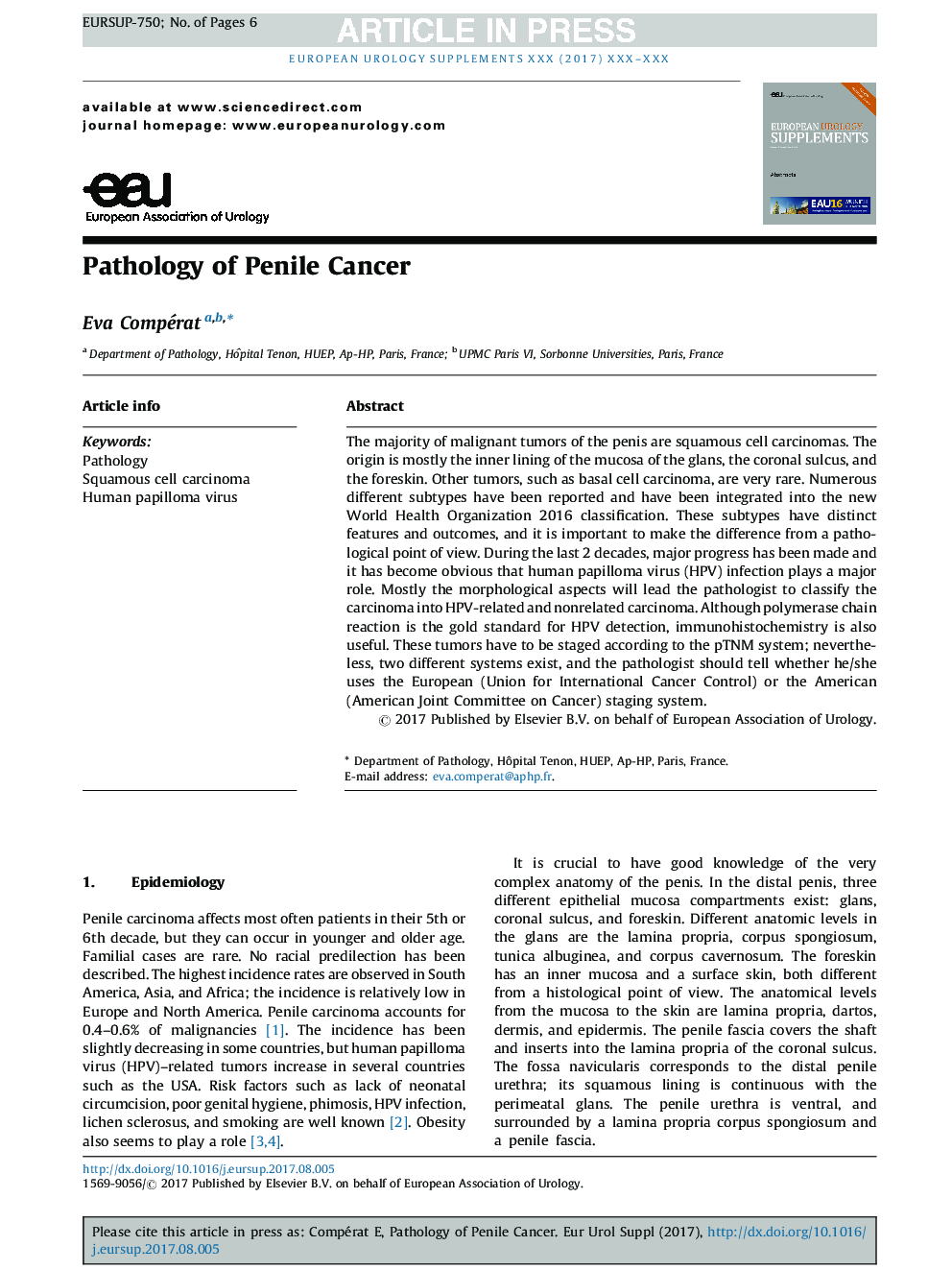| Article ID | Journal | Published Year | Pages | File Type |
|---|---|---|---|---|
| 8778706 | European Urology Supplements | 2018 | 6 Pages |
Abstract
The majority of malignant tumors of the penis are squamous cell carcinomas. The origin is mostly the inner lining of the mucosa of the glans, the coronal sulcus, and the foreskin. Other tumors, such as basal cell carcinoma, are very rare. Numerous different subtypes have been reported and have been integrated into the new World Health Organization 2016 classification. These subtypes have distinct features and outcomes, and it is important to make the difference from a pathological point of view. During the last 2 decades, major progress has been made and it has become obvious that human papilloma virus (HPV) infection plays a major role. Mostly the morphological aspects will lead the pathologist to classify the carcinoma into HPV-related and nonrelated carcinoma. Although polymerase chain reaction is the gold standard for HPV detection, immunohistochemistry is also useful. These tumors have to be staged according to the pTNM system; nevertheless, two different systems exist, and the pathologist should tell whether he/she uses the European (Union for International Cancer Control) or the American (American Joint Committee on Cancer) staging system.
Related Topics
Health Sciences
Medicine and Dentistry
Obstetrics, Gynecology and Women's Health
Authors
Eva Compérat,
